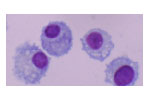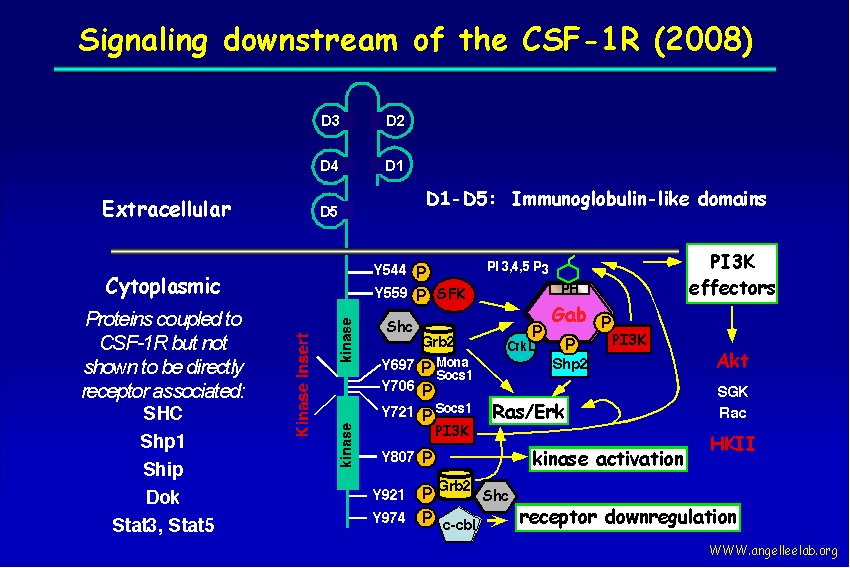
Colony Stimulating Factor-1 (CSF-1 or M-CSF) and its receptor, CSF-1R
CSF-1 is the growth factor for cells of the monocyte-macrophage lineage. CSF-1R is a receptor tyrosine kinase that activates many signaling pathways upon ligand binding (see below).
Due to the ubiquitous nature of macrophages, CSF-1 has many physiological functions:
·
Hematopoiesis - CSF-1 supports the proliferation, survival and differentiation of cells of the monocyte/macrophage lineage; absence of Langerhans cells in CSF-1R-/- mice
and dramatic depletion of blood monocytes in CSF-1 deficient op/op mice
·
Inflammation -
1) CSF-1 primes macrophages for the inflammatory response; 2) increased numbers of macrophages in many chronic diseases including arthritis, cancer (see below), atherosclerosis, obesity, neurodegenerative diseases, glomerulonephritis
·
Bone remodeling – CSF-1 is secreted by osteoblasts and the interaction between CSF-1 and CSF-1R found on earlyosteoclastic progenitors is necessary for their differentiation into mature osteoclasts. Mice lacking either CSF-1 or CSF-1R do not have osteoclasts and develop a disease called osteopetrosis, characterized by excess bone growth
·
Reproduction – CSF-1 has been suggested to play a role in trophoblastic growth and embryonic development due to the observation that during pregnancy CSF-1 is secreted by the uterine epithelium with coordinate expression of CSF-1R in the trophoblasts
·
Central nervous system– CSF-1 is secreted by astrocytes while CSF-1R is expressed in microglia and neurons in certain parts of the CNS. Recently a role for CSF-1 in brain ischemia has been proposed
·
Cancer – Aberrant expression of CSF-1 and CSF-1R has been found in cancers of the breast, ovaries and endometrium,correlating with disease progression and malignancy. CSF-1 is a biomarker for postmenopausal breast cancer risk. A role for CSF-1-dependent macrophages in breast cancer is well supported: 1) strong correlation between poor prognosis and TAMs (tumor associated macrophages); 2) CSF-1 is important for the angiogenic switch and progression to malignancy.
